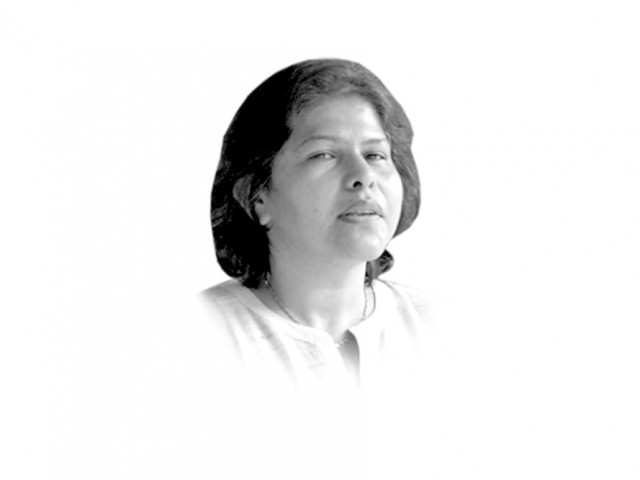The Green Revolution?
One could not agree more with Altaf Hussain’s call for the change of a feudal, fascist mindset.

Without wasting this space to discuss petty politics, I will base my analysis on the assumption that the MQM chief is following a considered policy. After all, besides the ANP, the MQM is the only party which included land reforms (with the intent of putting an end to feudalism) in its election manifesto. Early this year, a prominent MQM member, Syed Mustafa Kamal, briefed an American audience in Washington, DC about how his party’s struggle was against feudalism and that it represented middle-class values. Despite Mr Hussain’s personal style, which many find amusing, there are few people who would not notice his call for a green revolution — an orderly, or perhaps disorderly, rebellion of the middle class supposedly leading poor Pakistanis against the traditional feudal elite.
However, such a revolution should be based on a clear understanding of the term ‘feudalism’. The concept, as defined by Karl Marx, refers to a particular mode of production in which capital and labour are concentrated in a single hand. Over the past 63 years, concentration of land in the hands of the few has reduced substantially. Akbar Zaidi’s research, which shows substantial reduction of large land holdings, is an essential reading before Altaf Hussain’s party comes to Punjab. The largest province, in any case, does not have huge tracts of land.
Having said that, it is true that land in Pakistan symbolises traditional power. Many people not only acquire land but also the behaviour and mindset representative of feudalism. Marx never explained the politico-cultural dimension of feudalism which signifies contempt for ordinary people and the tendency to impose one will on the rest by use of force. This mindset is found among the urban elite and the middle class as well. Private jails in Karachi, target killing of opponents and psychological coercion of the educated into submission to a central leadership is a behaviour not confined to just one part of Pakistan.
The country, in fact, has a pre-capitalist culture which is a marriage between post-colonial capital and feudalism. So, I shouldn’t have been surprised when I heard a foreign- educated popular television anchor talking contemptuously of ordinary Pakistanis and castigating them for supporting dynastic politics. In his view, ordinary people were stupid. It didn’t occur to him that perhaps their behaviour is as stupid as the folly of those who become clients of institutions despite their education.
Or is it not feudal to suggest that someone presenting a divergent point of view should leave the country and acquire another passport? Such behaviour is not strictly feudal but a mix of feudalism and fascism. After all, it was an educated segment of Pakistan that killed thousands of Bengalis in 1970, the Baloch in 1973 and later and the Sindhis during the 1980s.
One could not agree more with Altaf Hussain’s call for the change of mindset. One only hopes that he does not confuse eradication of feudalism with destruction of agriculture. Despite growing urbanisation, our economy is still agri-based. In fact, the increase in urbanisation is an unplanned result of growing rural poverty. For the poor landless peasant, the ‘lord of the manor’ may be a more familiar evil than an alien civil or military bureaucrat who is equally brutal in dispossessing him from the state land where he has kept his family for many years. This is not a defence of feudalism or the landowning elite but an attempt to say that in their arrogance to impose their choices on ordinary folk and a bulk of this country, representatives of middle class could destroy more than they might build. It will help develop respect for people before we advocate change.
Published in The Express Tribune, September 7th, 2010.















COMMENTS
Comments are moderated and generally will be posted if they are on-topic and not abusive.
For more information, please see our Comments FAQ